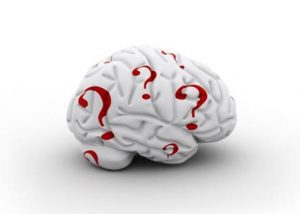By Deane Alban
Contributing Writer for Wake Up World
Exactly how our brains work is still largely a mystery, but a tremendous amount has been learned about the brain in the past 20 years. As a matter of fact, we’ve learned more in the past 20 years about the brain than was previously known in all of human history! We are truly living during a brain information explosion.
Many of us are still operating on outdated information about our most complicated and important organ. A new poll conducted on behalf of The Michael J. Fox Foundation found that a surprisingly large percentage of people still believe old brain myths. (1)
Knowing the truth about the brain goes beyond learning a new fact to win at Trivial Pursuit. Understanding how the brain works and taking action on that information can have profound effects on your brain health, and even the quality of the rest of your life.
How many of these limiting brain myths do you believe to be true?
Myth #1
You are born with a set number of brain cells. When they die, they can never be replaced.
I learned this myth as a kid. You probably did, too. It’s a frightening prospect, especially when you consider how many things kill some brain cells — anything from a bump on the head to smelling paint fumes.
The brain contains stem cells that can develop into new brain cells throughout your life. Healthy lifestyle habits can stimulate new brain cell production. Physical exercise increases BDNF (brain-derived neurotrophic factor) which has been compared to Miracle Gro for your brain. Meditation and learning new skills have both been shown to stimulate new brain cell formation.
Myth #2
We use only 10% of our brains.
While we were led to believe we couldn’t grow new brain cells, we were also told we used only 10% of our brains. Maybe that extra 90% could kick in if needed?
We use all of our brain. Even the theory that there are left-brained and right-brained people is outdated. Both halves of the brain are integrated more than was previously believed. (2)
Myth #3
Memory loss and other types of mental decline are a normal part of aging.
Brain processing speed is one function that peaks in our 20”²s, but many other cognitive skills improve with age. Older people often have better vocabularies, more life experience to draw from, better social skills, and enhanced problem-solving abilities. Seniors, on average, are happier than their younger counterparts. When you’re young, it’s hard to believe, but now I know this to be true.
Age-onset cognitive decline is almost always a consequence of poor lifestyle choices. And that is oddly good news. By making healthier choices, you can reverse mental decline.
Myth #4
There’s no point in worrying about the state of your brain. There’s nothing you can do about it anyway.
Until recently, this was held to be true. But now it’s widely recognized that you are largely responsible for the state of your brain.
Your brain health and body health are integrally entwined. What is good for the body is good for the brain. Just as your lifestyle choices — how you live your life day in and day out — can make or break your physical health, they can do the same for your brain health too.
Myth #5
Alzheimer’s runs in my family, so I’m doomed.
A very small percentage of Alzheimer’s cases are clearly genetically determined. You would never know this from listening to the media but only 1% of Alzheimer’s cases are believed to be caused by genes. (3) Even if you have one or more genes that predispose you to develop Alzheimer’s, that’s no guarantee that they will be activated. And your lifestyle largely determines whether those genes remain inactive or get turned on.
One of the most fascinating things about Alzheimer’s is that some people have shown no mental decline, yet autopsies revealed their brain was riddled with plaques and tangles — abnormal clusters and strands of protein fragments — that are found in the brains of people with Alzheimer’s. There is evidence that using your brain in the right ways to create new neural pathways can override the worst of Alzheimer’s effects.
Myth #6
By the time I need it, they’ll have a cure for Alzheimer’s.
Don’t count on it. Pharmaceutical efforts for a cure have been a bust. Some drug companies have even decided to concentrate their efforts in finding a drug to prevent mental decline instead of trying to cure it. (4) The experts agree that there is no cure in sight and that prevention is the key.
Myth #7
Losing my memory wouldn’t be that bad, because I wouldn’t remember what I was missing.
I can see why you might be tempted to think this, but serious memory loss is a living hell for you and for the people who care about you. It is extremely frustrating to lose abilities and independence.
It’s quite common to be scared and confused. You become a danger to yourself and others. You turn your loved ones into caretakers and drain your financial resources. No, this is not the way anyone wants to spend the last years of their lives or be remembered.
Myth #8
A damaged brain can’t repair itself and you’ll never be the same after an injury or stroke.
When you think about it, this really doesn’t make any sense. Why would your most important organ be irreparable? People with brain injuries, strokes, and other serious brain issues can, and do, regain their mental capacities.
There have even been cases of people who have lost half their brain and go on to lead a normal life. Doctors at Johns Hopkins specialize in hemispherectomies, an operation where half the brain is removed to stop life-threatening seizures. Shockingly, there is no effect on personality or memory.
Myth #9
The brain is like a computer.
People have always compared the brain to the technology of the day. Laughably, at one time the brain was compared to a clock and then later a switchboard.
A much better analogy is that the brain is like the internet. The brain is a vast, interconnected network of neurons connected by synapses much like the internet is a network of websites connected by hyperlinks. Currently, your brain has many more connections than the internet has links — that’s a lot.
Myth #10
Improving my brain’s health will take a lot of hard work. I’m not sure I’m up for the challenge.
Getting your brain back to where it used to be, and keeping it there, isn’t hard or complicated. And it’s getting even easier all the time.
Making even a few alterations to your lifestyle can yield major changes for your brain. Some core things you should be doing for your brain, such as eating healthy, exercising, and getting enough sleep, are things you should be doing anyway because of all the other health benefits they provide!
Taking the right supplements is another easy way to enhance the health of your brain.
Your brain thrives on being used, especially being used in new and different ways. There are brain training programs designed to stimulate your brain, which millions of people have found helpful.
Learning to play music, learning a new language, creating art or doing anything that offers new and different mental challenges work very well to give your brain the stimulation it needs. This causes the brain to grow more new cells and rewire its connections constantly, and this keeps it young, fit, and working as it should.
The upshot of all this myth-busting is that your brain is resilient and constantly changing. You have more control over the state of your brain than previously believed. Don’t waste this knowledge! Use it to create the brain, and the future, that you want.
Previous articles by Deane:
- 5 Ways to Tame Springtime Allergies Naturally
- Protect Your Brain and Bones with Strength Training
- Beat Brain Fog: Know the Causes, Symptoms and Solutions
- 5 Common Food Additives That Are Toxic to Your Brain
- Coconut Oil Cures Alzheimer’s Disease: Truth or Wishful Thinking?
- 6 Common Habits that Rob You of Essential Brain Vitamins
- The ABCs of Vitamins for Memory and Brain Health
- The Toll Being Overweight Takes On Your Brain
- Work Smarter, Not Harder: Everyday Memory Improvement Tips
- Eat Your Way Smart With a Brain Food Diet
About the author:
Deane Alban holds a bachelor’s degree in biology and has taught and written on a wide variety of natural health topics for over 20 years. Her current focus is helping people overcome brain fog, “senior moments”, and other signs of mental decline now, and preventing Alzheimer’s and dementia in the future.
The human brain is designed to last a lifetime, but modern life takes a greater toll on the brain than most people realize. Deane teaches the best ways to keep your brain healthy and stay mentally sharp for life at her website BeBrainFit.com.

If you've ever found value in our articles, we'd greatly appreciate your support by purchasing Mindful Meditation Techniques for Kids - A Practical Guide for Adults to Empower Kids with the Gift of Inner Peace and Resilience for Life.
In the spirit of mindfulness, we encourage you to choose the paperback version. Delve into its pages away from screen glare and notifications, allowing yourself to fully immerse in the transformative practices within. The physical book enriches the learning process and serves as a tangible commitment to mindfulness, easily shared among family and friends.
Over the past few years, Wake Up World has faced significant online censorship, impacting our financial ability to stay online. Instead of soliciting donations, we're exploring win-win solutions with our readers to remain financially viable. Moving into book publishing, we hope to secure ongoing funds to continue our mission. With over 8,500 articles published in the past 13 years, we are committed to keeping our content free and accessible to everyone, without resorting to a paywall.








